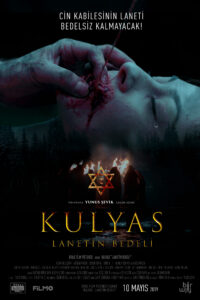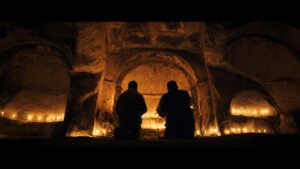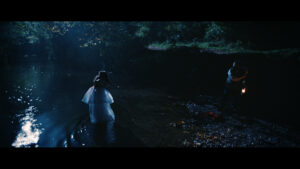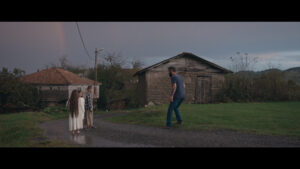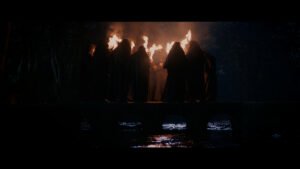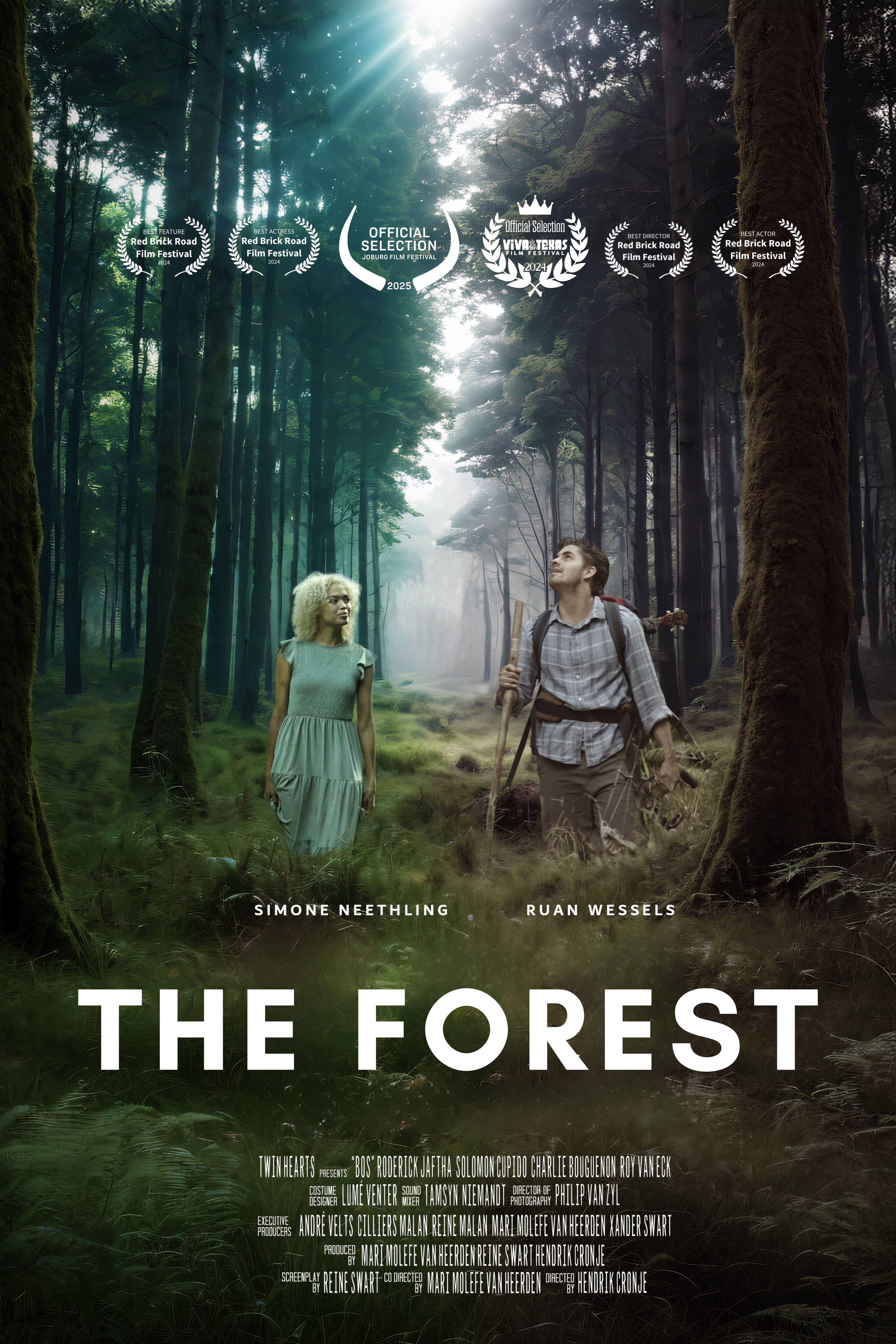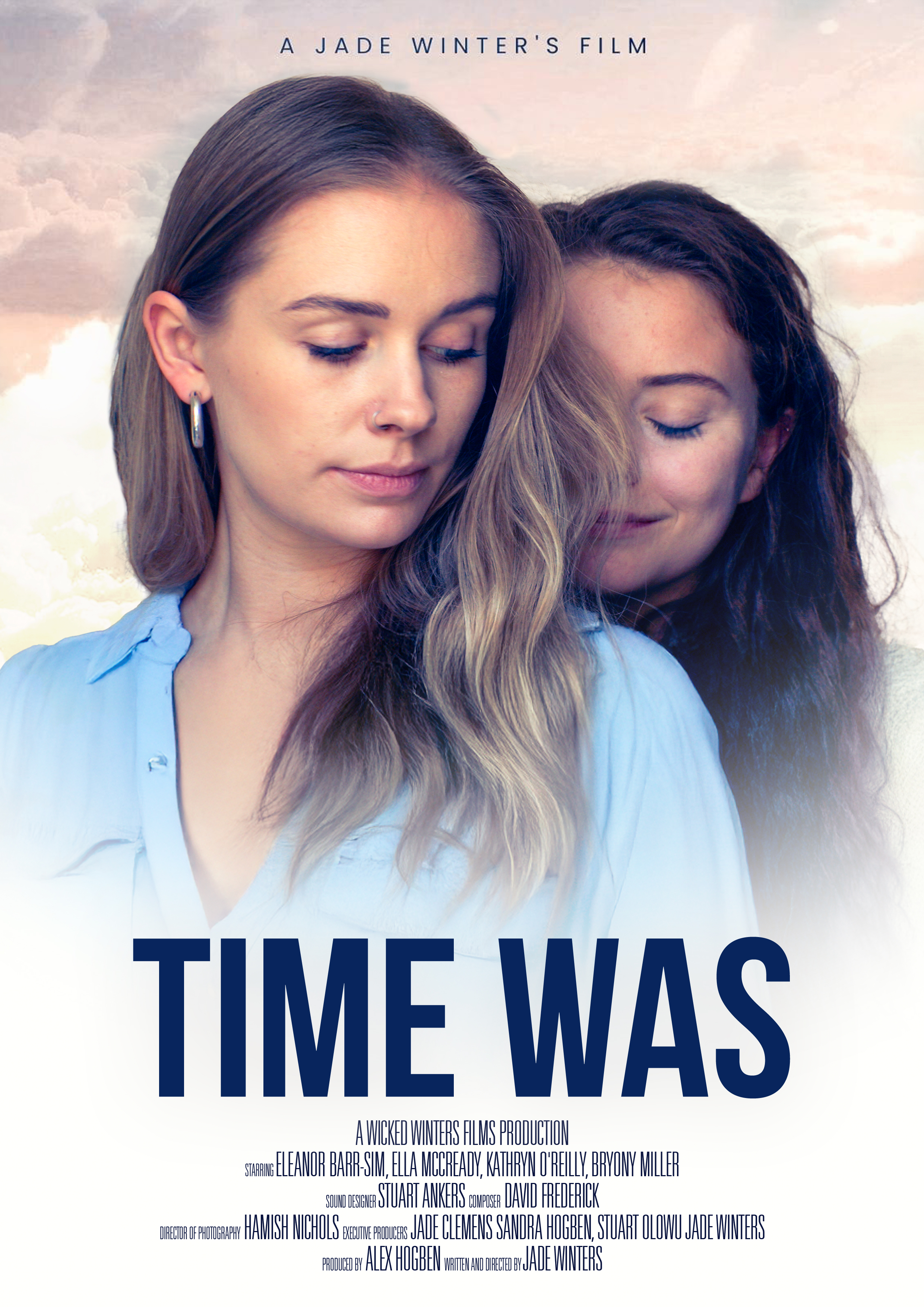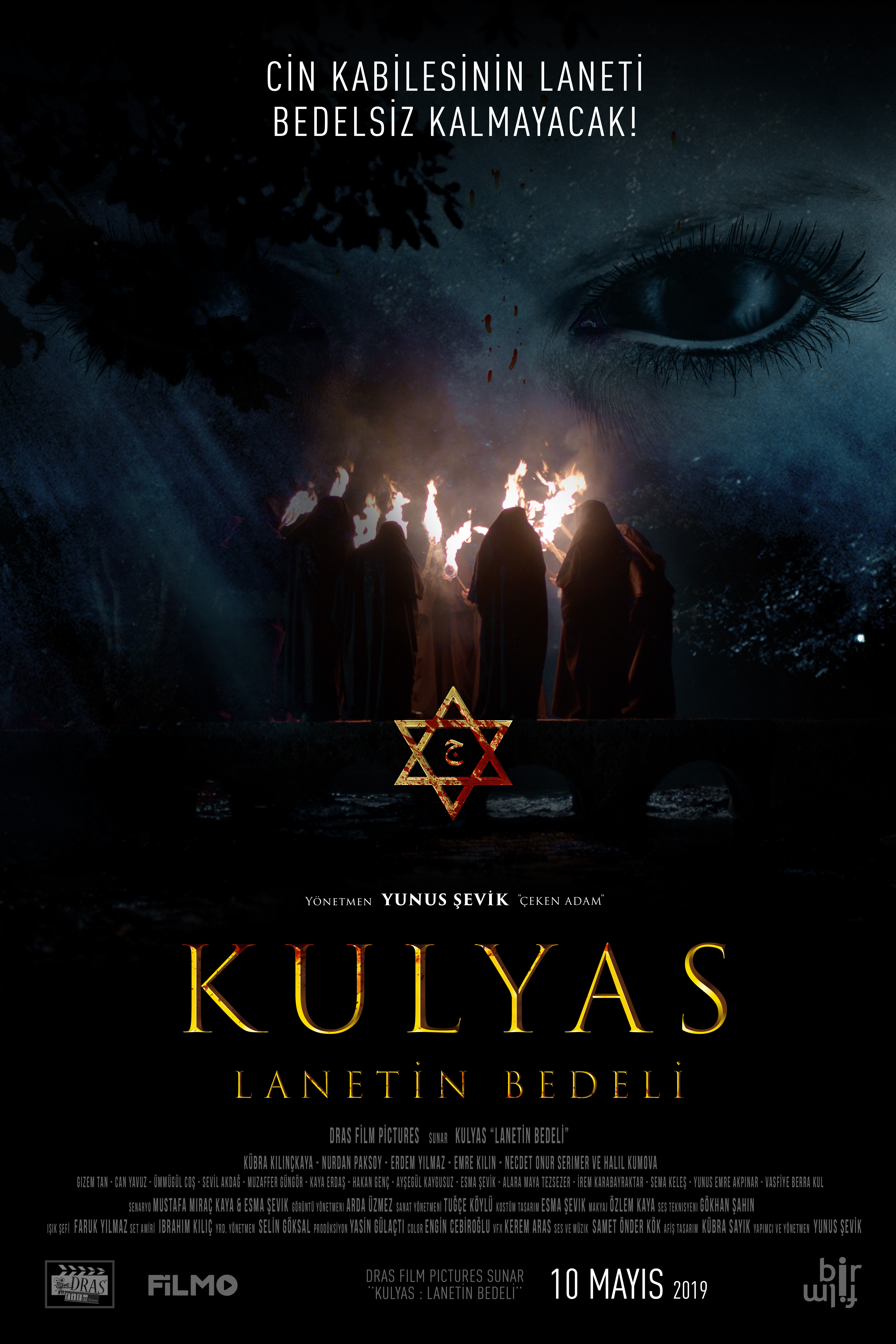
Indie Film Review “Kulyas: Lanetin Bedeli”
WATCH THE TRAILER HERE
First, the Recap:
Are there any limits to the depths and/or lengths human beings will stoop or go to in order to attain power and control? The force that is greed so readily grabs hold, driving us to make decisions and take actions that are solely to benefit our own selfish ends, regardless of what the actual cost is, especially for others swept up in the ensuing maelstrom of it all. But, when a balance has been set to waylay such endeavors, what happens when this long-established liberation gets upended and avarice once more takes form? Two couples, Beyza (Nurdan Paksoy) and Anil (Erdem Yilmaz) plus Defne (Kubra Kilinckaya) and Gorkem (Emre Kilin), embark on what is meant to be a simple vacation/photographic contest journey which ends up in an isolated rural village. Unaware of the evil they’re soon to encounter as the community’s creepy history is revealed and dark deals from a jaded past become terrifyingly real, an innocent roadtrip turns into a waking nightmare.
Next, my Mind:
As a critic since 2014, the horror genre was initially a realm I was hesitant to truly delve into, as so much of it seemed to remain more in the slasher/buckets of gore categories which I personally do not get entertainment or any kind of real satisfaction from. But, as time went on, I began looking more into the supernatural/psychological style that carried a more innate creepy, chill you to your soul sense of unnerved tension that I found so much more engaging (think “The Conjuring”, “The Babadook”, Lights Out”, “Hereditary”). Now, again for ME, while there have been a very few NON-supernaturally based films that jarringly depict what I call “human horror” but were absolutely brilliant in their execution–ie: “Midsommar” and “The Coffee Table” (the latter reviewed here)–my tastes have primarily remained in the supernatural/fantastical, and this is where I returned for a slightly older 2019 Turkish horror effort from director/producer/editor Yunus Sevik, writer Mustafa Miraç Kaya, writer/co-producer Esma Sevik, plus co-producers Mehmet Bilgic and Kerem Aras that stands firmly as both a practical and effective venture into this horror arena.
Through a narrative that sees what, granted, could still be considered your prototypical horror trope that follows a small group of young adults and their inadvertent stumbling into what turns out to be a totally chaotic and fateful encounter, this time via a legion of Kulyas tribe jinn (demons of Middle Eastern Islamic religion and folklore) who’ve made a resurgence after being released from imprisonment due an originally nefarious deal made in the village’s past, what I first found enticing about the film is simply that, while the general foundational concept here isn’t, in itself, wholly original, it IS a portrait of the stylistic aspirations intended as seen through the eyes of a totally different country’s culture and associated religious beliefs and/or mythologies, which alone makes it intriguing to me BECAUSE it is NOT an American viewpoint of the subject matter being utilized. Hence, it made the film still have an inherent “freshness” to it, despite the grander, oft-explored similarities to our own country’s horror efforts.
But, we then also begin to realize and acknowledge the fact that this film travels beyond its baseline premise and quite effectively becomes a statement about the dangers of human greed, as addressed in the synopsis above, and the steps people will take to obtain and maintain supposed “wealth” and “power”, only to discover the price they’re ACTUALLY paying for it is well beyond what they can handle or control, therefore unleashing an evil into the world through their chosen path. So, we’re seeing the employment of demonic forces as an illustration of just how consumed we can become for “prosperity” and assumed “longevity” and “worth”, only to find that it isn’t at all to our benefit, but rather to severe detriment personally, much less to others who we draw into it. Folks, there’s no denying this reality, the presence of grim and violent supernatural entities notwithstanding, that we AS human beings tend to create more ways to harm ourselves and each other for the specter of rapacity than avoid it, and honestly, that could truly be seen as the core purpose in what this film is portraying, with demonic takeover as the symbol of utter corruption.
And this poisoning of our very being is brutal, relentless, and unforgiving to all in its path, constantly exacting the cost of our own poor decisions, ravenous to the point of total destruction and absolute taking over of who we are. What I also liked here were what I deem the overall use of practical special effects which, given a lower budget available I am guessing, was necessary yet WORKS, as the whole “milky-eyed, “savaged” skin, eerily grimacing mouth” look for when the jinn make their presence within someone known just consistently gives me chills. Plus, while SOME other effects weren’t quite on point, it didn’t take anything away for my staying present when watching the film. Plus, as with any quality horror project in my opinion, the real kicker is by thinking about placing yourself IN the scenario being shown and what that would be like! If that doesn’t cause an atmosphere of fright to come about within you, not totally sure what will! Also, having learned recently that Sevik & Co. are currently filming “Kulyas 2”, all I know is that I AM ready to see how the film look and story being done have progressed in four years since the first.
Additionally, the film’s finale more than leaves events open for further journeys into the unsettling domain of the jinn and their entrenched hold on humans. Paksoy, Yilmaz, Kilinckaya, and Kilin work deftly well together as an ensemble and individually through their performances as Beyza, Anil, Defne, and Gorkem respectively, a foursome of friends (who make up two couples as well) on a seemingly innocuous trip for relaxation and participation in another friend’s photo contest who end up off the beaten path, arriving in a highly secluded village where to say all is NOT what it seems is an understatement. Watching and experiencing as their time spent there becomes less and less fun and more and more ominously foreboding due to increasingly disturbing, haunted dreams and all the other direct signs they’re in the company of menacing beings and a village with a dark agenda. Each actor brings what I felt was the correct degrees of emotionally intense energy to the characters, not allowing things to become melodramatic or unviable, but instead delivering credible and grounded delivery that embodies the dread and terror they’re confronting.
Primary supporting roles come first from Halil Kumova as Kamber, the village’s preacher whose decidedly quiet, but unequivocally sinister demeanor only hints at what he really is and the plans that are in place for the unfortunate travelers to the community. Ümmügül Cos plays Hacer, Kamber’s wife, and another person who more than paints a picture of the total, direful ambiance the village exudes as it becomes more apparent to their initially unwitting guests that all is not well. Onur Serimer plays Mureh, a shadowy, mute figure who appears randomly to the group until it seems evident he is yet one more person who is more than he seems. A wealth of additional supporting appearances are made by Muzaffer Saygin Üngör, Sevil Akdag, Kaya Erdas, Hakan Genç, Aysegül Kaygusuz (in a particularly brief but fully memorable, disquieting turn!), Esma Sevik, Hatice Oztas, Huseyin Hosoglu, Yasin Gulacti, Yunus Emre Akpinar, Seme Keles, Vasfiye Berra Kul, Alara Maya Tezsezer, Irem Karabayraktar, Yeni Kurbanlar, Gizem Tan, and Can Yavuz.
So, in total, “Kulyas: Lanetin Bedeli” is an undeniably familiar yet still utterly unique passage into the world of supernatural horror, made more surprisingly relevant by its conspicuously underlying cautionary tale focused on our own affinity for materialism and its accompanying desires when its gone too far, attained at too high a price, and hence unbinding those things that then devour and replace who we truly should be, with a result here anyway that showcases why we should still be VERY much afraid of the dark, what we sometimes choose to believe, and what is unseen that can suddenly turn all too real and frightening.
As always, this is all for your consideration and comment. Until next time, thank you for reading!
